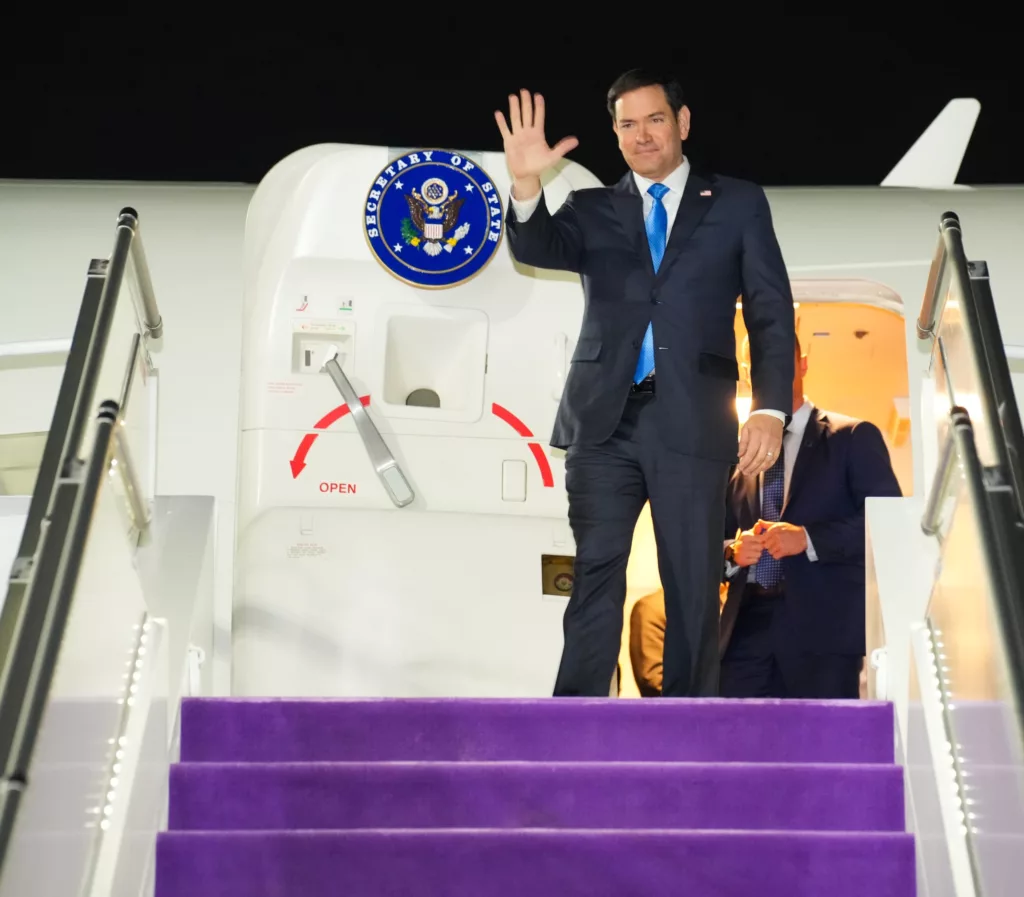Amid renewed diplomatic outreach between Washington and Islamabad, United States Secretary of State Marco Rubio on Thursday, August 14, extended Independence Day greetings to Pakistan, even as global criticism over the Pahalgam terror attack continues.

The attack, which occurred in Jammu and Kashmir on April 22 and claimed the lives of 26 tourists, was carried out by Pakistan-backed terrorists and drew international condemnation, including from the US.
Despite the backdrop of the attack, Rubio’s statement reflected a tone of cooperation. “On behalf of the United States, I extend our warm congratulations to the people of Pakistan as they celebrate their Independence Day on August 14. The United States deeply appreciates Pakistan’s engagement on counterterrorism and trade,” he said.
The US had previously designated The Resistance Front (TRF), which claimed responsibility for the Pahalgam incident, as a terrorist organisation.
Rubio also highlighted emerging areas of collaboration, including energy and strategic resources. “We look forward to exploring new areas of economic cooperation, including critical minerals and hydrocarbons, and fostering dynamic business partnerships which will promote a prosperous future for Americans and Pakistanis,” the statement read.
The comments come at a time when the US-Pakistan relationship appears to be entering a new phase under President Donald Trump’s administration.
Reports suggest that Islamabad has offered access to mineral-rich Balochistan, sparking renewed American interest in the region’s energy reserves. This is seen as part of a broader US strategy to diversify critical mineral supply chains and reduce reliance on China in defence-related technologies.
However, this strategic engagement has not been without controversy. Pakistan Army Chief, Field Marshal Asim Munir, who recently visited the US to strengthen military and diplomatic ties, faced protests from members of the Pakistani diaspora and supporters of former Prime Minister Imran Khan’s Pakistan Tehreek-e-Insaf (PTI) party.
Protesters accused the military of authoritarian practices and human rights abuses, with videos from the demonstrations — some showing chants of “Geedad” (jackal) directed at Munir — circulating widely on social media.
The proposal to deepen cooperation in Balochistan has drawn sharp criticism from Baloch activists. Mir Yar Baloch, a prominent voice in the movement, warned that increased foreign involvement would only embolden Pakistan’s military establishment and further marginalise the local population. He described Balochistan as “an ancient sovereign nation under illegal occupation” and criticised what he called the exploitation of the region’s natural wealth by the state.
Tara Chand, President of the Baloch American Congress, also condemned the potential mineral agreements and labelled Munir a “fake Field Marshal” and an “enemy of humanity.” He called for the international community to act against Pakistan’s nuclear capabilities, warning of the dangers posed by what he described as a “religiously motivated” leadership in Islamabad.


